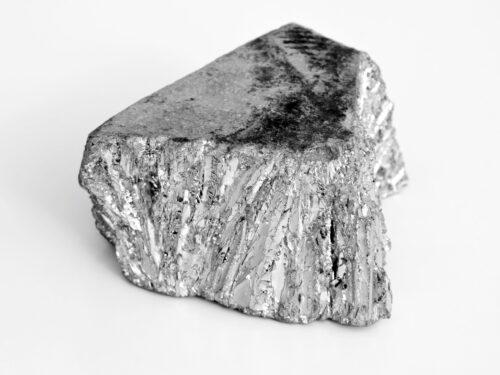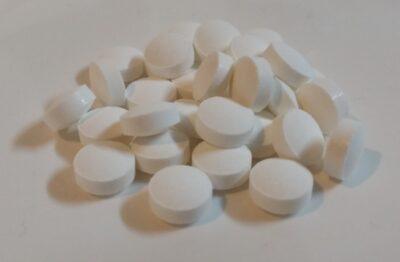
Benefits of Hibiscus
Hibiscus helped save our puppy We found a pedigree Golden retriever for sale for $50 in the local paper. At the time, they were selling

We usually offer a workshop in the Summer, Summer Herbal Home Spa, in which I demonstrate making a waterproof natural sun block incorporating zinc oxide.
One year, as I was pouring it into silicon tubes, it was too hot and it melted the tube and flowed down to burn my leg.
It burned my leg but, surprisingly, started to feel better right away.
Due to the amazing healing properties of the zinc oxide, the burn healed quickly, in just a few days!
Zinc oxide is a chemical compound consisting of one zinc atom bound to one oxygen atom. As a dietary supplement, it is used to supply the body with zinc, an essential mineral.
Zinc is opaque and reflects and scatters light, explaining why it is useful in a sunblock. When applied topically, it offers protection from outside irritants and serves as an astringent and a weak antiseptic.
The mineral works as an antioxidant, offering protection from free radical molecules that can damage cell membranes.
Zinc Oxide Powder does not readily dissolve in water but will suspend into a somewhat cloudy mixture when stirred.
Zinc oxide is used in many creams and ointments to prevent or alleviate sunburn and other skin irritations such as diaper rash. It’s also available in oral formulations to promote wound healing.
Zinc plays a role as a component of many enzymes and as a catalyst of enzyme systems regulating cell growth, DNA and protein synthesis, energy metabolism, regulation of gene transcription, hormone levels and growth metabolism.
It is necessary for anyone who wants healthy skin, bones, hair, nails and eyes and is essential in hormone production.
Zinc supplements are used to support normal growth and health and to alleviate zinc deficiency (a condition referred to as hypozincemia.)
Make sure that you’re getting the recommended daily allowance — 15 milligrams per day — of zinc through foods such as pumpkin seeds (in the shell), oysters, nuts and beans, or by taking a zinc supplement.
Men lose zinc in semen so the more semen they lose, the more needs to be supplemented.
I take 22 mg zinc as zinc glycinate daily.

Zinc deficiency is a worldwide risk and has been attributed to be the fifth leading risk factor for disease in the developing world.
Overall, even conservative estimates suggest that 25% of the world’s population is at risk of zinc deficiency. Up to 73% of the population is at risk in certain countries. but also affecting distinct populations in the developed world as a result of lifestyle, age, and disease-mediated factors.
Consequently, zinc status is a critical factor that can influence antiviral immunity, particularly as zinc-deficient populations are often most at risk of acquiring viral infections such as HIV or hepatitis C virus.
Lack of zinc may result in poor vision at night, slow healing of wounds, a decrease in sense of taste and smell, a reduced ability to fight infections and poor development of reproductive organs.
In children it causes growth retardation, delayed sexual maturation, infection susceptibility and diarrhea, contributing to the death of about 800,000 children worldwide per year.
Most men, later in life, can develop a condition known as benign prostatic hyperplasia (BPH) which is an enlargement of the prostate gland.
This swelling pinches the urethra, the duct by which urine is conveyed out of the body from the bladder, causing a condition known as insufficiency which is characterized by needing to urinate, but not being able to, except a few dribbles in some cases.
The prostate gland stores zinc, which not only prevents prostate enlargement but may also help to shrink a prostate gland that’s already swollen.

Zinc oxide is available in bulk powder form for about $15/pound. This equates to about 60 cents worth of zinc oxide in a $12 (2.9 oz) tube of sunscreen with 18.75% zinc oxide (offering a SPF of 30).
Caution: when working with zinc oxide powder, be careful not to inhale the powder as inhalation of large amounts could present heath risks.
University of Maryland Medical Center: Zinc
Linus Pauling Institute, Micronutrient Information Center: Zinc
Teaching comprehensive holistic education since 1985.
We are currently offering interactive hybrid courses including Herbal Fundamentals, Energy Healing, Aromatherapy and Clinical Herbology
Hybrid means you may choose to participate in each individual class in the hybrid course online or in person.
All of our products are made with love from organic, all-natural and ethically sourced ingredients.
We began making and perfecting our own herbal remedies more than thirty years ago and offer our favorite products for purchase.

Hibiscus helped save our puppy We found a pedigree Golden retriever for sale for $50 in the local paper. At the time, they were selling
Hawthorn Berry Hawthorn is known as the heart herb for its many benefits as a heart tonic. The berry has been a key part of

Can you take herbal supplements to arm your immune system? You probably know that zinc, vitamin D and vitamin C are gotta-have-its. How about herbal

While attending San Diego State College in the early seventies, my work-study job was in the vivarium, a room for keeping and raising animals for